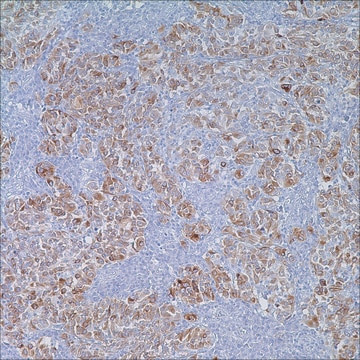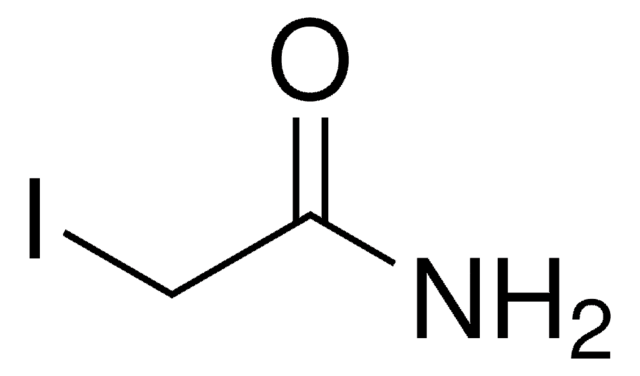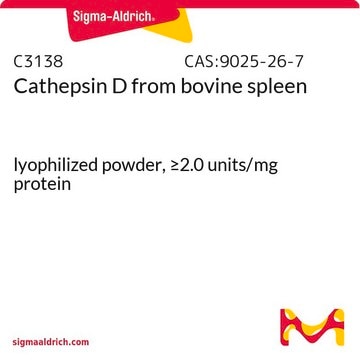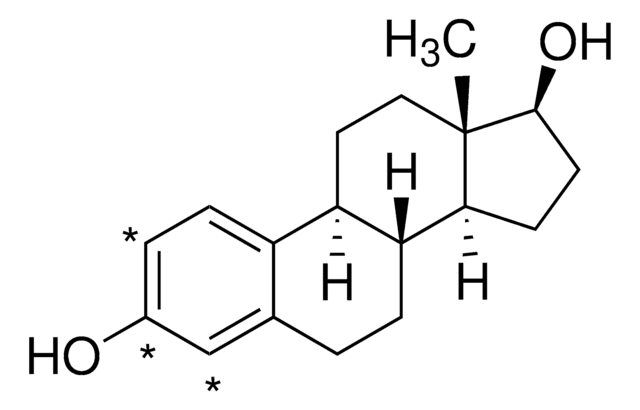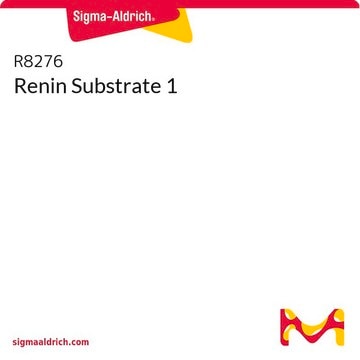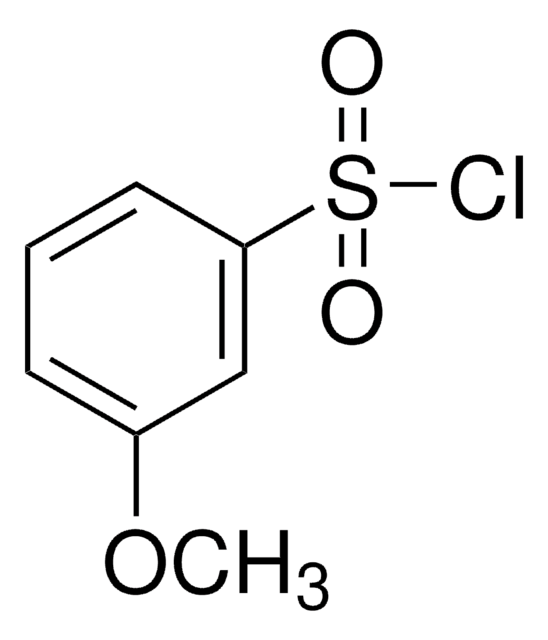M6324
MART-1 (27-35), Human
Synonym(s):
Antigen LB39-AA (27-35) (human), Antigen SK29-AA (27-35) (human), Melan-A Protein (27-35) (human), Melanoma Antigen Recognized By T-Cells 1 (27-35) (human)
Sign Into View Organizational & Contract Pricing
All Photos(1)
About This Item
UNSPSC Code:
12352200
NACRES:
NA.32
Recommended Products
form
lyophilized powder
Quality Level
color
white
solubility
water, double-distilled: soluble
storage temp.
−20°C
Amino Acid Sequence
Ala-Ala-Gly-Ile-Gly-Ile-Leu-Thr-Val
General description
The peptide represents amino acids 27-35 of MART-1 protein that is the melanoma antigen recognized by T cells. This peptide mimics the natural epitope that is presented by T cells in humans with reactivity to melanoma cells.
Melanoma-associated antigen recognized by T cells-1 (MART-1), also known as Melan-A, is encoded by the gene mapped to human chromosome 9p24.1. The encoded protein is a hydrophobic transmembrane protein. MART-1 is mainly expressed in skin and retinae melanocytes.
Biochem/physiol Actions
Melanoma-associated antigen recognized by T cells-1 (MART-1) is essential for the functioning of glycoprotein-100 (gp100). Overexpression of the gene has been observed in cutaneous melanoma (CM). In addition, deletion of Mart-1 gene leads to parotid metastatic melanoma.
Physical form
Lyophilized from 0.1% aqueous TFA
Other Notes
Lyophilized from 0.1% TFA in H2O
wgk_germany
WGK 3
flash_point_f
Not applicable
flash_point_c
Not applicable
Certificates of Analysis (COA)
Search for Certificates of Analysis (COA) by entering the products Lot/Batch Number. Lot and Batch Numbers can be found on a product’s label following the words ‘Lot’ or ‘Batch’.
Already Own This Product?
Find documentation for the products that you have recently purchased in the Document Library.
Comparative genomic hybridization in a case of melanoma that loses expression of S100, HMB45, Melan A and tyrosinase in metastasis
Guo R, et al.
International Journal of Clinical and Experimental Pathology, 7(1), 468-468 (2014)
María Marcela Barrio et al.
PloS one, 7(7), e40311-e40311 (2012-07-07)
Dendritic cells (DC) can achieve cross-presentation of naturally-occurring tumor-associated antigens after phagocytosis and processing of dying tumor cells. They have been used in different clinical settings to vaccinate cancer patients. We have previously used gamma-irradiated MART-1 expressing melanoma cells as
Our team of scientists has experience in all areas of research including Life Science, Material Science, Chemical Synthesis, Chromatography, Analytical and many others.
Contact Technical Service